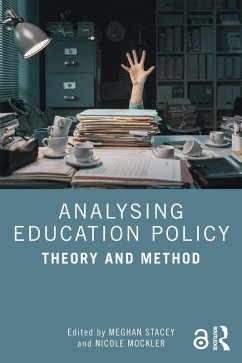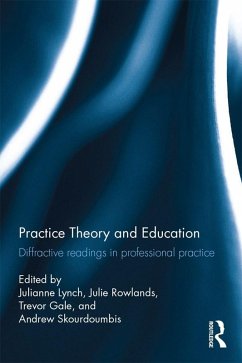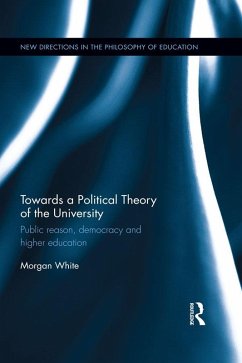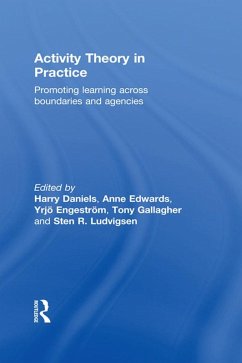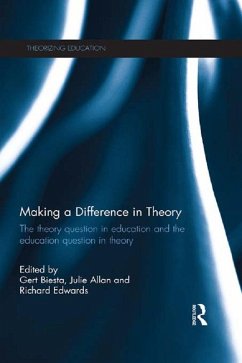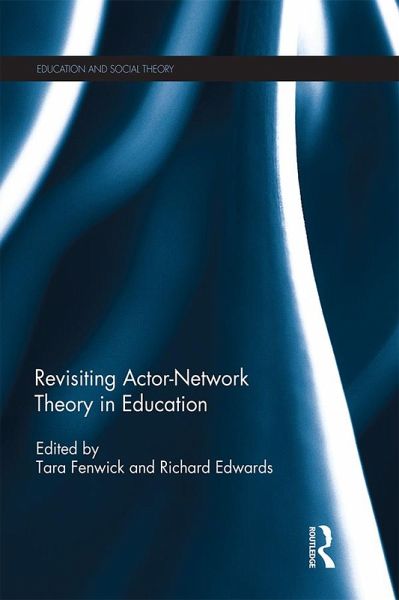
Revisiting Actor-Network Theory in Education (eBook, ePUB)
Versandkostenfrei!
Sofort per Download lieferbar
43,95 €
inkl. MwSt.
Weitere Ausgaben:

PAYBACK Punkte
22 °P sammeln!
Actor-network theory (ANT) is enjoying a notable surge of interest in educational research. New directions and questions are emerging along with new empirical approaches, as educators bring unique sensibilities and commitments to the ongoing debates and reconfigurations that characterise ANT-inspired research. Ethics and politics are now figuring more prominently in ANT-related educational publications, as are educational policy and the critical studies of assessment practices. Research on digital technology in education has also attracted critical exploration with ANT approaches.This book gat...
Actor-network theory (ANT) is enjoying a notable surge of interest in educational research. New directions and questions are emerging along with new empirical approaches, as educators bring unique sensibilities and commitments to the ongoing debates and reconfigurations that characterise ANT-inspired research. Ethics and politics are now figuring more prominently in ANT-related educational publications, as are educational policy and the critical studies of assessment practices. Research on digital technology in education has also attracted critical exploration with ANT approaches.
This book gathers together articles that address important educational issues while showing creative theoretical and methodological possibilities for ANT studies in education. This book aims to locate these contributions within broader trajectories of inquiry in education and sociomaterial approaches considered worthy of attention, given the challenges facing educators today. It also raises critical questions about what appear to be certain oversights or less helpful ideas in what is emerging in the field.
This book gathers together articles that address important educational issues while showing creative theoretical and methodological possibilities for ANT studies in education. This book aims to locate these contributions within broader trajectories of inquiry in education and sociomaterial approaches considered worthy of attention, given the challenges facing educators today. It also raises critical questions about what appear to be certain oversights or less helpful ideas in what is emerging in the field.
Dieser Download kann aus rechtlichen Gründen nur mit Rechnungsadresse in A, B, BG, CY, CZ, D, DK, EW, E, FIN, F, GR, HR, H, IRL, I, LT, L, LR, M, NL, PL, P, R, S, SLO, SK ausgeliefert werden.




